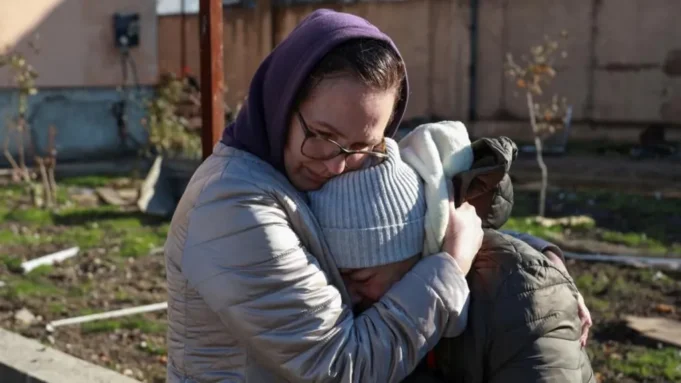In a matter of days US President Joe Biden’s administration and Russia have made separate – but significant – moves aimed at influencing the outcome of the war in Ukraine, two months ahead of Donald Trump’s return to the White House.
There is a sense of Moscow maximising its gains and of Biden abandoning long-held red lines before Trump seeks to deliver on his claim to end the war in 24 hours.
Ukraine has already acted on Biden’s decision to let Kyiv fire first long-range ATACMS missiles deep into Russian territory. As Kyiv struggles to hold on to its territory in the east, Biden has promised to send anti-personnel landmines, too.
What prompted Biden’s change of heart appears to have been the arrival of thousands of North Koreans deployed to the front line, which the US sees as a “massive escalation”.
But Russia’s President Vladimir Putin has ratcheted up the tension still further by loosening the conditions of use for Russia’s nuclear weapons. That “effectively eliminates” defeat on the battlefield, claims Moscow.
One Russia commentator suggested Putin might view the current situation as an “in-between” moment that gives him the sense he has the upper hand in Ukraine.
At the start of this week, Russia launched its biggest aerial attack on Ukraine for almost three months. Amid fears of a renewed strike on Wednesday, several Western embassies closed their doors.
“It’s all connected,” says Mykhaylo Samus, head of the New Geopolitics Research Network in Ukraine. He argues Russia has been stockpiling hundreds of Iskander and Kinzhal missiles for weeks to enable it to carry out strikes and thus send a psychological message ahead of the transfer of power in Washington DC.
Ukraine’s capital, Kyiv, may have been spared on Wednesday, but the message got through.
“Everything is about preparing for a strong position for talks with Trump, to understand Russia is not going to make compromise and everything depends on [Ukraine’s President Volodymyr] Zelensky.”
“There’s clearly an effort ahead of Trump to maximise their standings,” agrees Jade McGlynn, from the war studies department at King’s College London. She is highly sceptical that a deal with Vladimir Putin is possible – and that ultimately his aim is to subjugate Russia’s southern neighbour.
Ukraine marked 1,000 days since Russia’s full-scale invasion on Tuesday with Russian forces waging relentless attacks in a bid to seize key hubs in the east of Ukraine.
The mood in Moscow appears to be that it is only a matter of time before Ukraine is in its hands, says Tatiana Stanovaya of the Carnegie Russia Eurasia Center.
From January, however, Putin will have to consider other factors, she says: “He will have to deal with the fact that Trump now is responsible for the situation. If Putin escalates, it can worsen the chances for a deal. He will have to be more flexible, more open to different options.”




